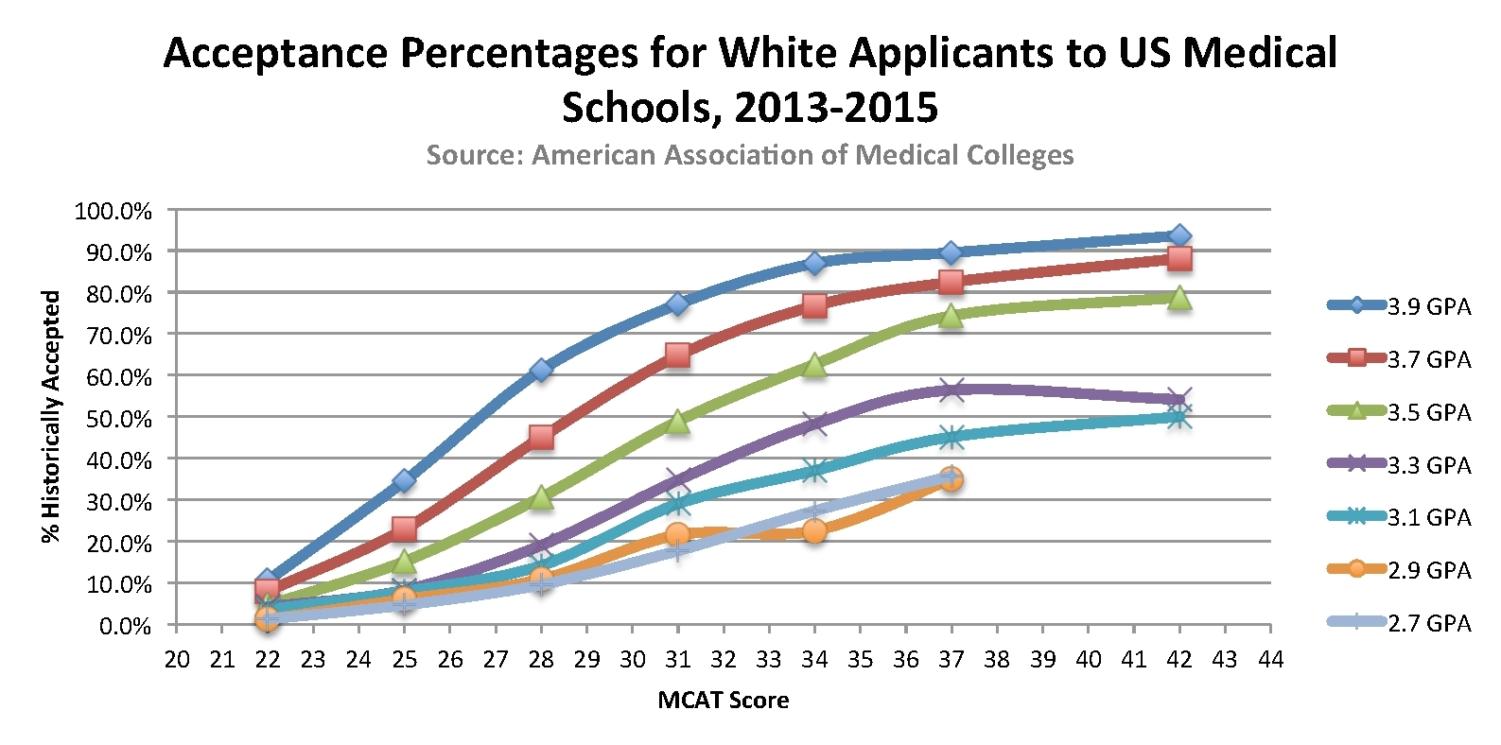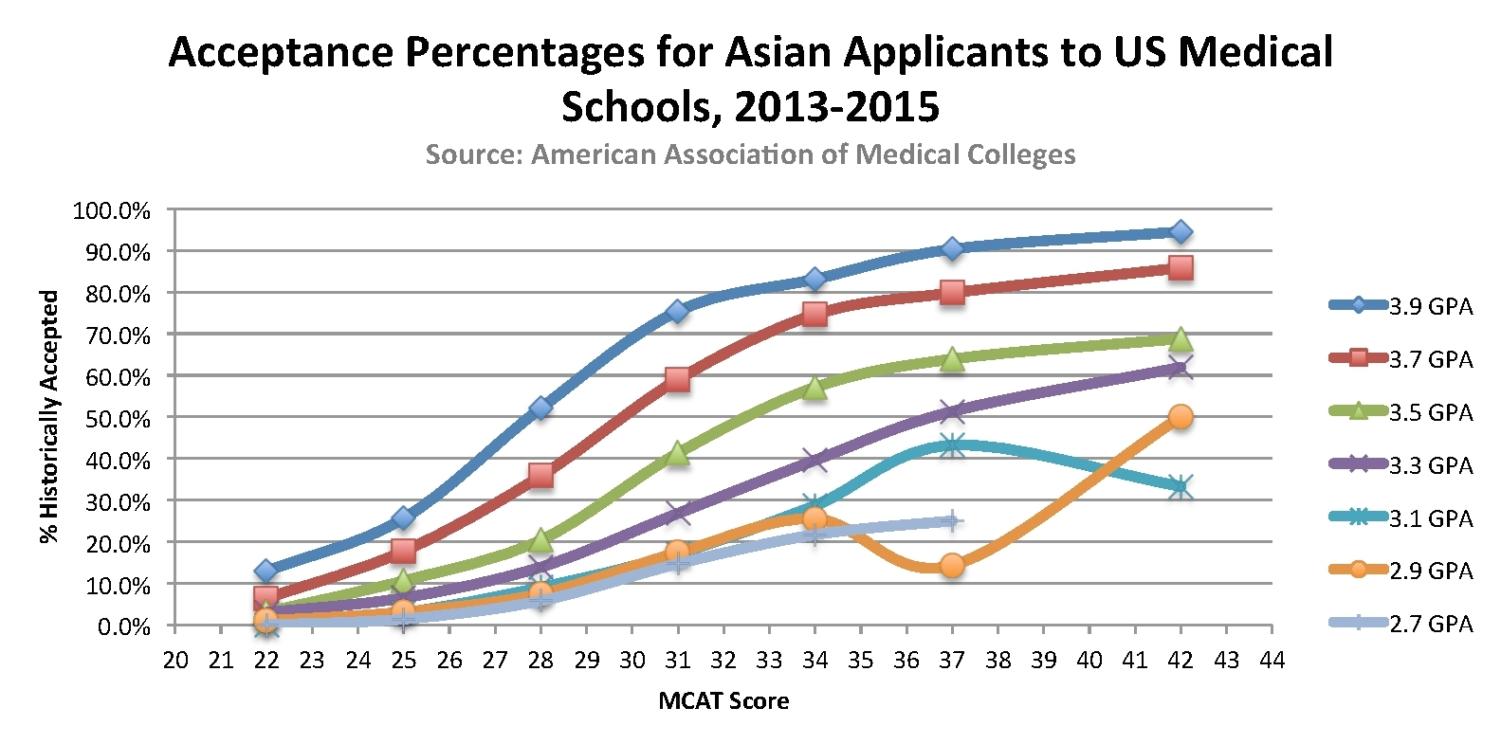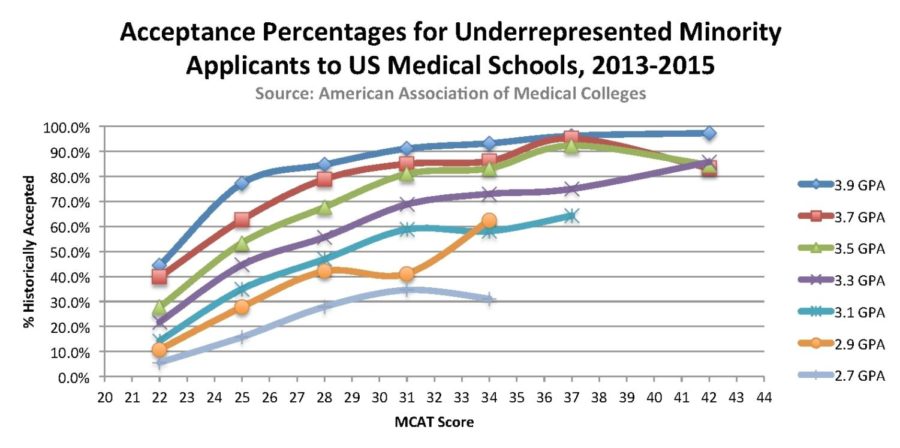Recently, the story of Vijay Chokal-Ingam—the man who got into medical school by pretending to be black—has spread across the Internet. Several aspects of Chokal-Ingam’s story are suspect: As reported by CNN, Chokal-Ingam was only accepted to one medical school, and this result cannot be compared to what his experience as a South Asian applicant would have been because he never applied as one. While there are many questions surrounding Chokal-Ingam’s story, one in particular has stood out to me. I wonder if the story would have the same drawing power if Chokal-Ingam’s story had one crucial difference: that he had gotten into medical school by pretending to be white.
It is a well-known fact that, with the same MCAT score and GPA, black applicants have a higher chance of getting into medical schools than Asian or white applicants. This is part of a complex discussion surrounding the large disparities in socioeconomic status and opportunity between these two pools of applicants in America. What is much less discussed, and much more difficult to justify, is the fact that, with the same MCAT and GPA, white applicants also have a higher chance of getting into medical school than Asian applicants.


For many Asian Americans, debates on affirmative action are uniquely complicated by the trend of Asians being generally discriminated against in University admissions. In light of this, it’s not too surprising that some Asian Americans may be jealous of other underrepresented minorities that benefit from affirmative action. But it seems odd that Asian dissatisfaction with admissions always gets co-opted by the media for the same arguments: as an argument against affirmative action. For some reason, it is always imagined that a black or Hispanic student is the one who is “stealing our spot,” instead of, say, a white student.
The funny thing is, there are stories of Asians who can pass as white (as a result of being multiracial, for example) trying to do so in admissions. Many opt out of self-identifying as Asian on their applications. However, the story which has now emerged into the national consciousness is the story which pits two minorities against each other—the story of a South Asian man pretending to be black.
This isn’t the first time the relationship between Asian Americans and college admissions has been painted this way. At the end of last year, it was reported that Asians were suing Harvard over their affirmative action policies. The dialogue surrounding the suit largely pitted Asians against blacks and Hispanics, minority against minority. But what was swept under the rug was that the lawsuit was actually filed by the Project on Fair Representation, run by the white Edward Blum. The group has sued universities on behalf of white applicants against affirmative action many times before. Their interests do not lie in representing Asians, but in co-opting Asian voices for their own benefit. And what we see is that this isn’t a minority-versus-minority problem. It has to do with minorities being pitted against each other instead of addressing the actual source of oppression—the majority.
To almost exclusively frame discrimination against Asians within arguments about affirmative action is an incredibly narrow-minded approach—so narrow-minded that it only makes sense within the context of sustaining an existing racial pecking order. Discrimination in admissions has to do with much more than, and much beyond, affirmative action. It has to do with the fact that Asians are also a racial minority in America and subsequently face the discrimination that comes along with that status. It has to do with the fact that our accomplishments are dismissed as the products of an academic machine instead of a human being. And that’s something that we definitely should, and need to fight against. But this conflation with arguments against affirmative action is not the way to do it.
Eleanor Hyun is a third-year in the College majoring in English.








